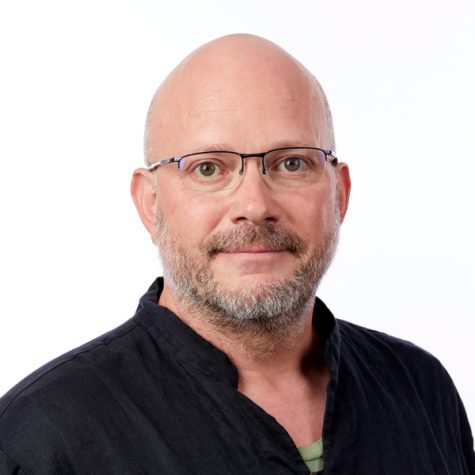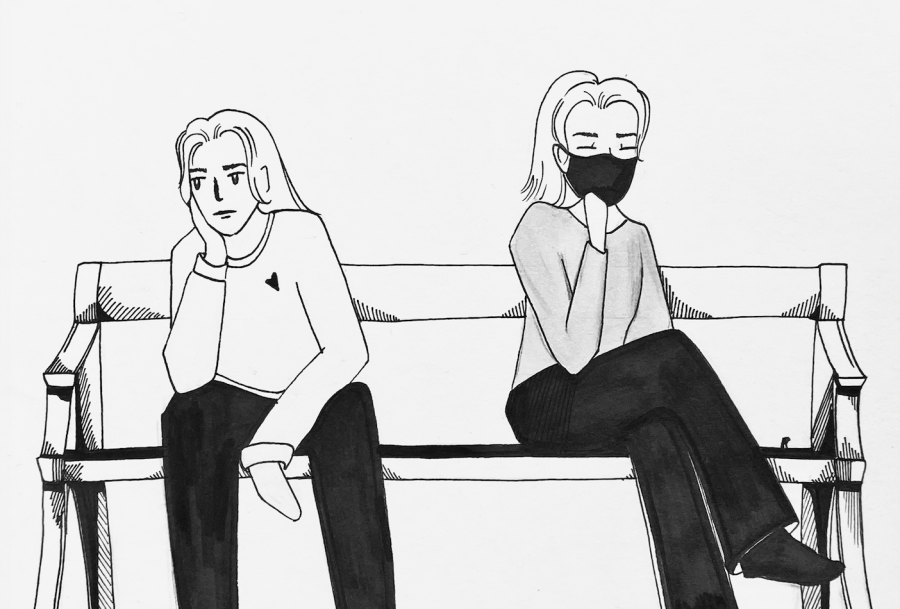Why is Everyone Sick? A Look into the “Tripledemic”
This winter, students with runny noses, coughs, and excruciating headaches have become a common sight on campus. Many Lakesiders have experienced recurring illnesses of higher intensity and extended durations, causing them to fall behind on classwork and leading to a spike in absences that has left classes feeling empty and low-energy. This phenomenon is not unique to the Lakeside community; health care providers all over the globe are reporting increases in cases of influenza, COVID-19, and respiratory syncytial virus (RSV) in a phenomenon that has been dubbed the “tripledemic.”
For the past two winters, Lakesiders were shielded from the usual seasonal flurry of sickness by online school, social distancing, and masks. This year, however, as COVID-19 restrictions have been lifted and people feel more comfortable socializing without masks, these wintertime viruses appear to be coming back stronger than before, with cases rising to the highest level for this time of year in over a decade.
But why is all this happening now? Why this year in particular? Well, it’s complicated. This resurgence of viruses is caused by a plethora of factors, but two in particular stand out, says Dr. Christopher Gill, a professor of global health at Boston University who conducts RSV surveillance in Zambia. Temperature and weather play an important role in the ebb and flow of viruses, he says. “Some viruses like it when it’s hot, so we get outbreaks of certain viruses late in the summer. And there are other viruses that like it cold, like RSV and the flu…so you get them during the winter.”
The second and more obvious factor in this tripledemic is a global lack of population immunity. “During COVID, we introduced these non-pharmacological interventions,” Dr. Gill explains, “meaning hand-washing and masking and keeping kids home from school.” Although these interventions were designed to stop COVID-19, they also worked against other viruses. This meant fewer exposures and, consequently, less population immunity. This decreased immunity, when combined with the expiration of mask mandates and other interventions, resulted in an immediate rebound in cases. “I think of it as ‘you wind up the spring and you let the spring go,’ but what we’ve done is kept winding up the spring, and now we’ve got this massive rebound from all that pent-up demand for viruses,” says Dr. Gill.

This surge of sickness — particularly RSV — is especially dangerous for young children and elderly people, says Dr. Padmini Srikantiah, deputy director of the Bill & Melinda Gates Foundation, who researches RSV in infants. RSV is a respiratory virus spread through airborne droplets and physical contact. It’s a very common virus, and symptoms are mild for most people, but in infants it can cause severe lung infection. For older children, Dr. Srikantiah is more concerned about the flu: “I also think we ought to be concerned about the slightly older children and school-going kids who are seeing plenty of influenza right now.”

But the question remains: how to prevent the spread of these viruses? The straightforward solution, health officials say, is to avoid being in large group settings if you are symptomatic. The second is, of course, masking. Masking has helped us in the past with limiting the transmission of COVID-19, and it can help us now in the midst of this tripledemic. In Lakeside’s most recent health and safety update, the school echoed these recommendations, advising that students wear masks indoors to protect themselves and others.
However, Dr. Gill points out that the situation may be more complicated: If masking has led to less exposure to viruses and decreased population immunity, is the solution more masking or is that just furthering the problem? The long-term goal is a predictable winter sickness season. “What we can’t plan for is a three-year tsunami of massive RSV because of all this pent-up demand. So we inadvertently created a new problem trying to solve the old problem,” he says.
Regardless of how Lakeside chooses to address this “tripledemic,” it is important to have faith in the medical system and to take care of ourselves through this tough winter season. If you are experiencing symptoms, get tested and at least wear a mask to school, or simply stay home. It won’t be the death of you to miss one math class. “Time tells us,” says Dr. Gill, “this, too, will pass. We just have to be patient. It’s going to be a bad year, but next year will be less bad.”


